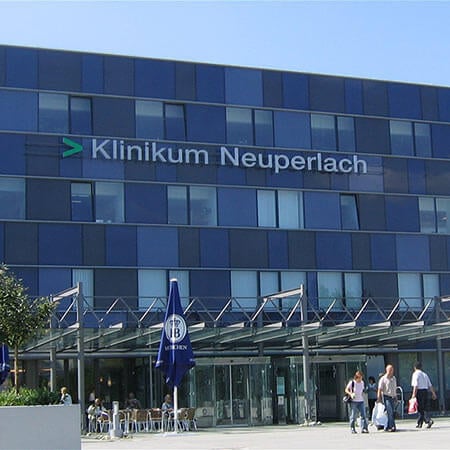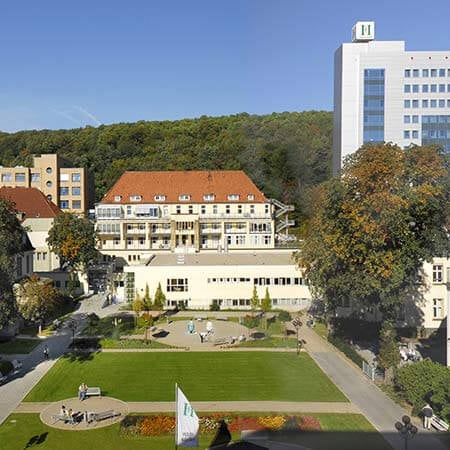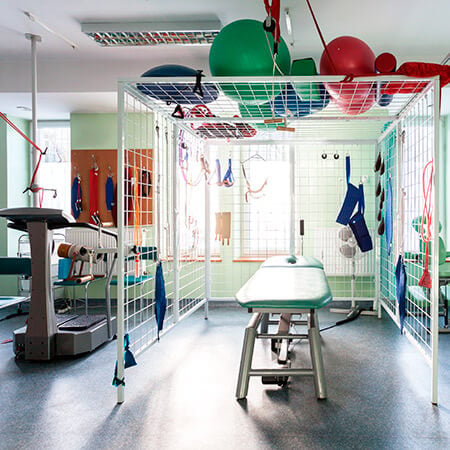Cushing’s disease
Due to the difficulties associated with the organization of treatment in Turkey, Switzerland, South Korea and India, we are not currently processing requests to these regions.
If you are interested in treatment in Germany, please leave a request and our specialists will contact you as soon as possible.
Cushing disease is a rare endocrine disease which develops on the background of pituitary adenoma or hyperplasia. The incidence of this disease in different countries varies from 1 to 3 cases per million population per year. Usually this pathology occurs at the age of 20-40. Cushing's disease is 5 times more common in women than in men.
The Booking Health portal presents 64 German clinics specializing in cushing’s disease treatment
Show all clinics
Cushing’s disease – Diagnostics
Diagnostics of Cushing’s disease is based on the characteristic clinical manifestations of the illness, and also on the laboratory and instrumental methods of diagnostics.
Determination of hormones level in the blood and urine. Concentration of ACTH and cortisol is increased, and the daily rhythm of their secretion is also disturbed in the case of Cushing's disease.
Adrenal glands examination. Half of the patients have increased adrenal glands, but even if there is no adrenal hypertrophy, they are usually indurated.
The following imaging techniques are used to assess the state of these organs:
- CT
- MRI
- Angiography
- Ultrasonic tomography
- Radioisotope imaging
X-ray methods. X-ray of the skull helps to reveal the pituitary adenoma. The main X-ray symptom is an increased sella turcica (the structure of the skull, where the pituitary gland is located). But it occurs only in 10% of cases. The remaining 90% is microadenomas. They can be detected in 60% of cases with the help of computed tomography.
Best clinics for the Cushing’s disease diagnostics in Germany:
Cushing’s disease – Treatment
Treatment may be pathogenic or symptomatic. Pathogenic therapy aims to normalize level of hormones in the blood. Symptomatic is aimed at the eliminating of the specific clinical manifestations of the disease (obesity, osteoporosis, heart insufficiency, carbohydrate metabolism disorders).
- Transsphenoidal prostatectomy. Pituitary tumor is removed with the help of neurosurgery. This is the primary method of treatment that helps to achieve a stable improvement in the majority of patients. The operation is performed with the help of microsurgical instruments.
- Radiation therapy. The irradiation of the intermediate-pituitary region is performed. This method is good because it’s not invasive, but its effectiveness is low. Radiation therapy may be used only in case of mild and moderate forms of the Cushing’s disease.
- Adrenalectomy is a palliative surgery. In patients with the severe form of the disease, both adrenal glands are removed, in patients with moderately severe form – only one. Further, lifelong hormone replacement therapy is required. This surgical treatment method can be combined with the radiation therapy, if necessary.
- Medication treatment is used to suppress the cortisol synthesis or as a symptomatic therapy. This method is combined with other methods of treatment and also prescribed for patients with contraindications for the surgery.
Best clinics for the Cushing’s disease treatment in Germany:

Charite University Hospital Berlin
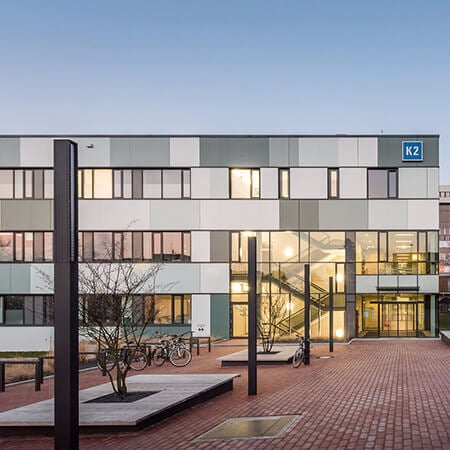
Hannover Medical School (MHH)
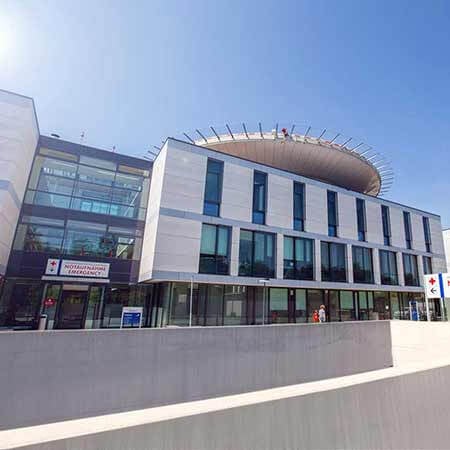
University Hospital Freiburg
Cushing’s disease – Rehabilitation
The most modern rehabilitation programs are used in Germany. They are adapted individually for each patient, and are based on the disease stage, age, physical possibilities, and the results of treatment. Different specialists such as: therapists, neurologists, psychologists, rehabilitators, kinesiotherapists, physiotherapists are involved in the rehabilitation process.
The following methods of rehabilitation are used:
- Dosed physical activity
- Training on the simulators and in the pool
- Individual orthoses
- Physiotherapy
- Acupuncture
- Manual therapy
- Transcranial magnetic stimulation
- Natural factors of the nature (mud, thermal waters, etc.)
- Individual or group therapy with a psychologist
Rehabilitation may include medicamentous support. It is necessary to hold a consultation with the patient about the proper nutrition and the way of life which is important for him in the current situation.
Rehabilitation programs in Germany are designed for 2 weeks. If necessary, they can last much longer. In this country, the patient is provided with qualitative care, accommodation in comfortable rooms and individually selected meals.
Rehabilitation programs in Germany show one of the best results in the world. Most patients successfully restore their working capacity and excellent health there. They remain physically active, return to the full social and family life.
Best clinics for neurological rehabilitation in Germany:
Author:
The article was edited by medical expert, board certified Dr. Nadezhda Ivanisova. For the treatment of the conditions referred to in the article you must consult a doctor; the information in the article is not intended for self-medication!
Sources:
The cost of services includes
Here you can find the cost of treatment for this disease at the German University Hospitals. Leave a request and we will provide a free consultation with a doctor and will start organizing the whole treatment process.
The program includes the following:
- Issuing of an invitation for getting a visa for treatment as quick as possible
- Fixing an appointment at a time convenient for you
- Preliminary organization of a comprehensive examination and discussion of the forthcoming treatment plan
- Arranging transfer from the airport to the hospital and back to the airport
- Provision of interpreting services and services of a personal medical coordinator
- If necessary, assistance in the organization of further surgical treatment
- Provision of a medical insurance against treatment complications covering up to 200,000 euro
- Preparation and translation of medical records and recommendations from the hospital
- Assistance in the subsequent communication with your attending physician, including consultations on repeated X-ray images through the unique medical document management system E-doc
